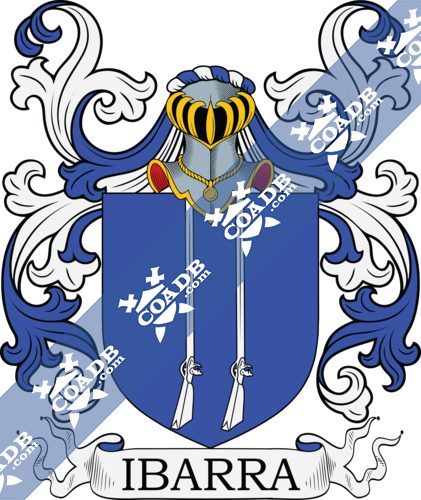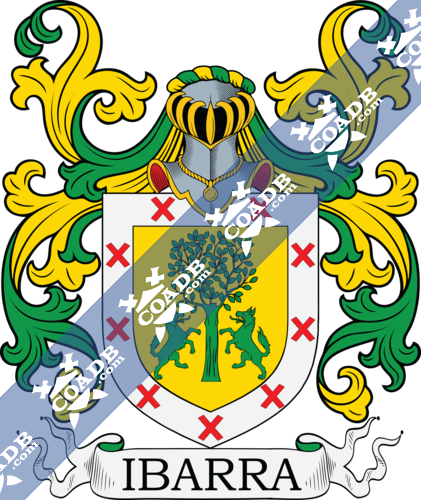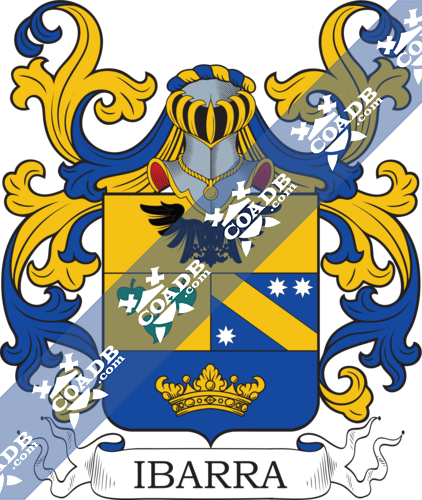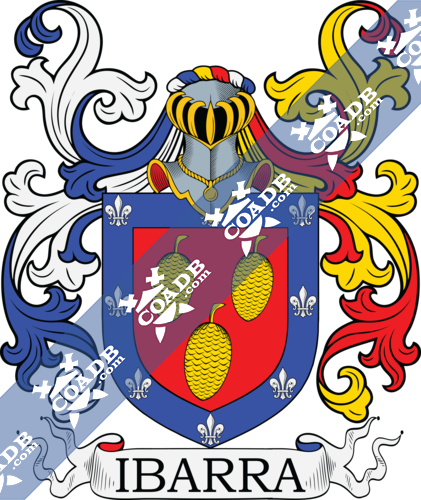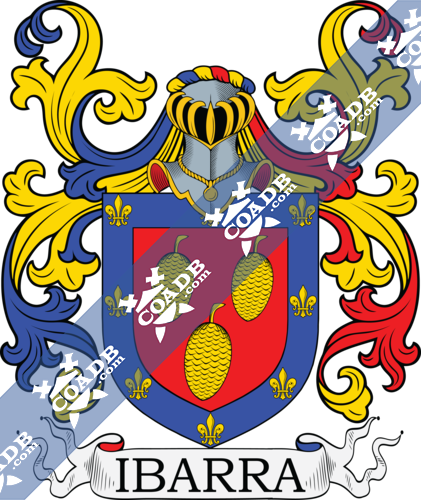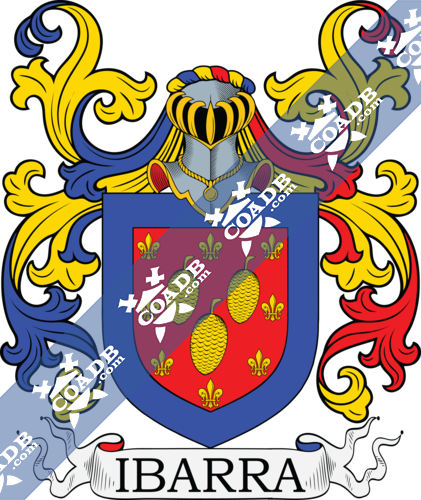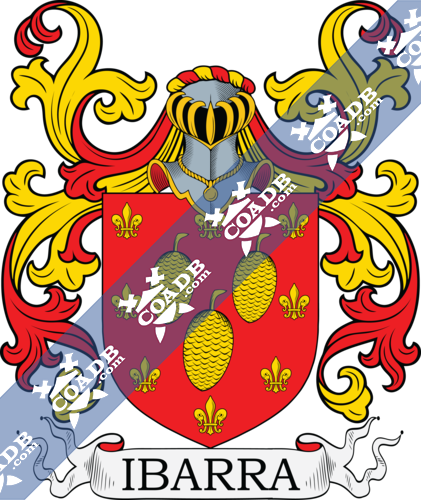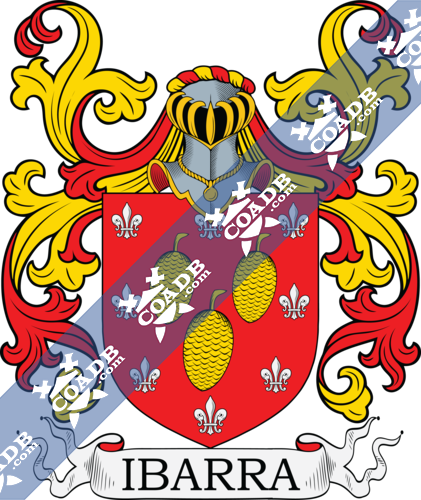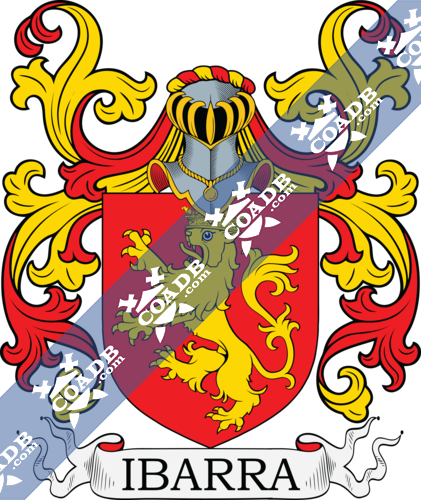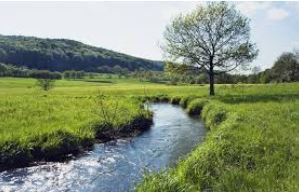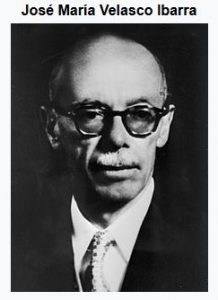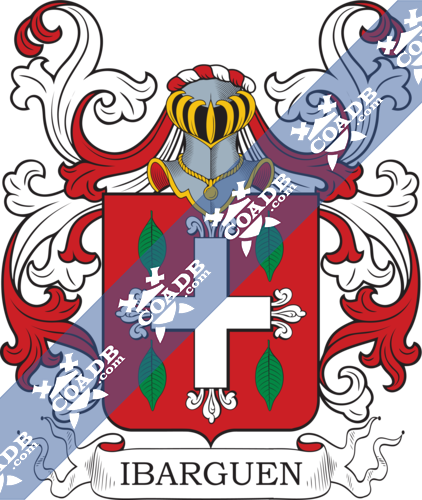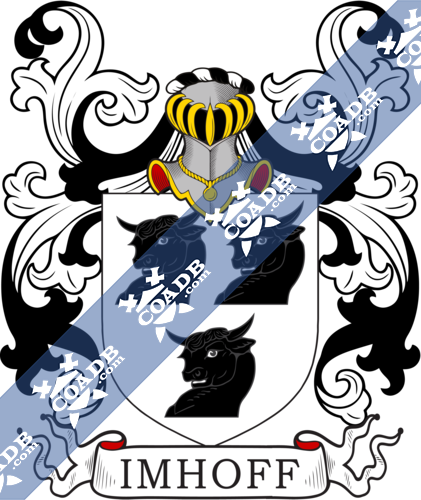Ibarra Family Crest, Coat of Arms and Name History
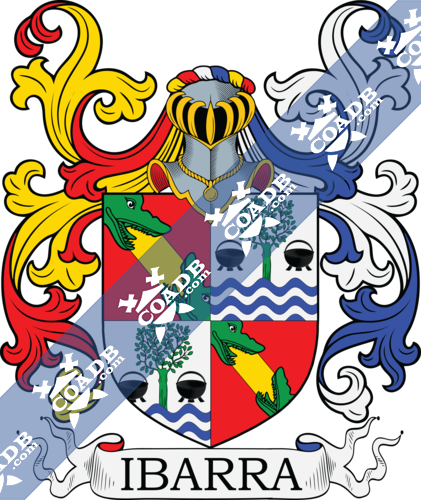
Ibarra Coat of Arms Gallery
Don’t know which Coat of Arms is yours?
We can do a genealogical research. Find out the exact history of your family!
Learn MoreSurname Meaning, Origin, and Etymology
Ibarra is a European surname with an interesting history. Its spelling variations are found across the whole old continent since many centuries ago. Almost every nation in Europe counts on its own form of Ibarra, and most of the time is the variation known as “Barra”. Etymologically, Ibarra comes from “barre” an ancient word that is from a period of time previous to the 7th century AD. According to some experts, “barre” is an “Old French” term, or maybe even has a Gaelic or Celtic origin. This would put the place of origin in France, but, others think differently because there are those who believe it comes from the Basque region in Spain.
In this second theory, Ibarra comes from the world “ibar”. In the first case, “barre” means hilltop or summit, and in the second “ibar” means “meadow”, in both cases is associated with a place with a particular topographical feature. However, it can also be linked to some old villages in France like Barre des Orbe and Barre de Semilly. So, it is not perfectly clear, if it comes from a feature of the land, of from the name of a village.
Actually, there are more possible meanings of Ibarra. After the 12th century in Medieval Europe, “barre” means gate or barrier or the point of entry to a city surrounded by walls. In that way, Ibarra could be used for the operators of that gate. Ibarra is even associated with another work, because “barre” was also used to refer to the makers of bars. All of this means that Ibarra could be used as an occupational name as well as a way to call the people from a certain place or village.
The first record that registered a bearer of Ibarra, or at least a spelling variation, is the Poll Tax of England, a series of documents that were used by the rulers to keep track of the personal taxation. The records talk about Anger de la Barra, who was in the city of London, England in 1217 during the reign of King Henry III, also known as “The Frenchmen” who ruled from 1216 until 1272.
Spelling Variations
Spelling variations for a surname were a common phenomenon in medieval times. In a single family, there can be several different ways to write its last name, which led to different family names. This didn’t happen because of a single reason; many factors played a role in the creation of variations to surnames. The first element to consider was the movement of people across Europe, thanks to all the wars that occurred in the Medieval Age. The direct consequence of this movement was the mix of cultures among the inhabitants of different regions. An example of this is Spain, which was originally the land of the Gauls, it felt under the control of the Roman Empire, then was an important post of the Muslims and it was taken again by Europeans. Therefore, it is common to find the influence of all of these cultures in the Iberian country and its surnames.
Another important reason was the writing and translation of last names. It is important to consider that during the Medieval Age, not all the people knew how to write, this major task was executed by the scribes. However, the only reference to writing a world for the first time was the sound of it, so a scribe could hear and writhe a surname in a certain way and other could do it in another way, so spelling variations occurred. A third reason was that a branch of the family wanted to be easily distinguished from the others, so they added or removed a letter of the surname to achieve that goal. This act of adding or removing letters of the last name was also done, as a way to express the loyalty of some members of a family to a certain lord or king, of the devotion to a religion.
Considering all of these factors, there are many spelling variations for Ibarra, such as Bar, Barre in English, Bara, Barra and Ybarra in Spanish and Portuguese, Barre, Barra, Labarre and De la Barre in French, and Barreiro and Barrera in Spanish and Mexican. Thanks to the fact that Ibarra has more that one place of origin and meaning, is not rare to find that it has a spelling variation in some of the major European languages.
Popularity & Geographic Distribution
In the ranking of popularity of the surnames, Ibarra is the 1,114th most common last name in the world, with approximately 477,154 bearers, not a very common surname. The country with the biggest number of bearers is Mexico, followed by the United States and then Colombia. Mexico is also the country with the highest density of users of Ibarra.
Early Bearers of the Surname
Fortunately, there are records that allow to know some of the old bearers of Ibarra, such as Pedro de Ibarra, who was a Spanish soldier and Governor of Florida from 1603 until 1609, Don Carlos de Ibarra Barreri, who after a career in the navy as Admiral, was named Marquis of Taracena on August 17, 1638, Jean de la Barre in Chenille-Change, Maine et Loire, France on September 12th 1604, Nicole Barra, who was born at Avaux, Ardennes, France on January 20, 1702. Others examples are Alonso Barra, who appears in a record from Sant Nicholas de Bart, Valladolid, Spain on January 19th, 1716, Mathias Antonio Barra at Santa Veracruz, Distrito Federal, Mexico on February 26th, 1745 and Juana Barrera at San Diego, California, on January 22nd, 1815.
History, Genealogy, and Ancestry
Thanks to the good records of Chile about genealogical trees, we can know about the history of some families, in this case, the Ibarra family. One of the biggest of these records begins with Juan de Ibarra, who was from Ugarte de Muxika, Euzkadi, a region of Basque in Spain. Juan de Ibarra was Captain who played an important role in the Conquest of Chile, and for that, he was awarded the title of Major of the Colchagua party in 1607 and also Governor of the Kingdom, Luis Fernando de Córdova in 1615. He got married in 1622 to Constanza de la Cerda y Niza, daughter of Miguel de la Cerda and María Niza y Escobar Bálcazar Bálcazar.
The first child of Juan de Ibarra and Constanza de la Cerda y Niza was Juan de Ibarra y de la Cerda, who got married to Juana González del Pulgar, daughter of Juan González Guiterrez de la Rosa and Catalina del Pulgar y Siguenza González de Medina. Juan de Ibarra y de la Cerda and Juana González del Pulgar had their own children, they were: Juan de Ibarra y González del Pulgar, from whom there are no records of a marriage or children, Esteban de Ibarra y González del Pulgar who got married to Tomasa de Maturana y Valles and had a child who died at 5 years old, José Ibarra y González del Pulgar, Jerónimo Ibarra y González del Pulgar, Francisco Ibarra y González del Pulgar, Lorenzo Ibarra y González del Pulgar. Bartolomé Ibarra y González del Pulgar who got married to Ana García de Ubeda y del Pozo Silva Lemos but didn’t have any offspring. Then, there was Constanza de Ibarra y González del Pulgar who got married to Alonso de Quezada y Priñán de la Garza with whom had only one son named Gregorio de Quezada e Ibarra. Finally, there was Catalina Ibarra y González del Pulgar who got married to Nicolás Vergara y Toledo and with whom had a child named Josefa Vergara Ibarra.
The second child of Juan de Ibarra and Constanza de la Cerda y Niza was Miguel de Ibarra y de la Cerda who got married to Isabel González del Pulgar, who was another daughter of Juan José Gutierréz de la Rosa and Catalina del Pulgar y Siguenza González de Medina. Miguel and Isabel had three children, the first one was Miguel de Ibarra y González del Pulgar who got married to Beatriz Villegas Miranda. This last couple had two children, Isabel Josefa Ibarra y Villegas and Miguel de Ibarra y Villegas. The second child of Miguel de Ibarra y de la Cerda and Isabel Conzález del Pulgar was Antonio de Ibarra y González del Pulgar, who got married to Juana Márquez Estrada y Acebedo. Antonio and Juana had two children, José de Ibarra Márquez y Estrada who got married to Luciana Toro Mazote de la Arriagada, their daugher was Ana Josefa Ibarra y Toro, and Beatriz de Ibarra Márquez y Estrada.
The third child of Miguel de Ibarra y de la Cerda and Isabel González del Pulgar was Roque de Ibarra y González del Pulgar who got married to Isabel Márquez de Estrada y Acevedo. This couple had five children Agustina de Ibarra y Márquez de Estrada, Gabriel Ibarra y Márquez de Estrada, María de Ibarra y Márquez de Estrada, Miguel de Ibarra y Márquez de Estrada, and Manuela de Ibarra y Márquez de Estrada.
The other children of Juan de Ibarra and Constanza de la Cerda y Niza were Martin de Ibarra y de la Cerda, Ana de Ibarra y de la Cerda who got married to Pedro González del Pulgar another child of Juan González Gutierréz de la Rosa and Catalina del Pulgar y Siguenza González de Medina and their child was Ana González Ibarra. Back to the children of Juan de Ibarra and Constanza de la Cerda y Niza, the following were Luciana de Ibarra y de la Cerda who got married to Cristóbal Díaz de Aguilera, Constanza de Ibarra y de la Cerda who got married to Gregorio de Gajardo y Rainedo and María Ibarra de la Cerda.
A different branch of the Ibarra surname started with Jose Ibarra Arascuñaga who got married to Ana María Almarza González. They only had one child Lucas Ibarra Arascuñaga y Almarza González who got married to Luisa Montt y Cabrera Paredes, daughter of José Montt y Monte de Rivera and Adriana Cabrera y Alguacil. The children of Lucas and Luisa were: José Ramón Ibarra Montt who got married to Cayetana Alvarez de Araya y Ramos and had one daughter, Adriana Ibarra Alvarez de Araya, then there were Adriana Ibarra Montt, Ana María Ibarra Montt, Sor María Josefa Ibarra Montt, María Luisa Ibarra Montt, Mercedes Ibarra Montt, María Francisca Ibarra Montt and Manuela Ibarra Montt.
Early American and New World Settlers
After the first contact between America and Europe, many inhabitants of the old continent decided to travel to the new one, with the goal of starting a new life and exploring new lands. With their arrival, they brought their culture and their family names. This is how Europeans surnames come to America.
In the case of Ibarra, some of the bearers that did the trip in 19th century were Ramona Ibarra who landed in Puerto Rico in 1816, Gab Ibarra who arrived in New Orleans in 1831, Ignacio Ibarra who also landed in New Orleans that same year, and Mariano Ibarra and Ramon Ibarra, who landed in Puerto Rico in 1860 and 1875 respectively.
During the 20th century the bearers of Ibarra in arriving in America were Filiberto Ibarra who landed in America coming from Sevilla, Spain in 1098, Francisco Rubio Ibarra, who arrived in America in 1908, Castor Ibarra, who arrived in America in 1910, Carmen Ibarra who landed in America in 1911 and Estebon Ibarra who landed in the United States in 1914.
Notables
Some bearers of the surname Ibarra have been important names in different fields like politics, sports, and music. Part of this remarkable characters are Gabriel Rafael Mendoza Ibarra (b. 1968) a football soccer player from Chile, Juan Carlos Rodríguez Ibarra (b. 1948) a politician from Spain, Ramón Ibarra Banda (b. 1956) a Mexican professional wrestler known as “Super Parka”, Aníbal Ibarra (b. 1958) an Argentine politician, Joaquín Ibarra (1725-1785) Spanish writer, Eloísa Ibarra (b. 1968) an artist from Uruguay, José María Velasco Ibarra (1893-1979) former President of Ecuador from 1944 until 1947, and Bowie Ibarra who was a candidate for Texas state comptroller in 2002.
Blazons & Genealogy Notes
1) Écartelé aux 1 et 4 de gueules à la bande d’or engoulée de deux têtes de dragon de sinople aux 2 et 3 d’argent à un arbre de sinople soutenu d’une eau ondée d’azur et d’argent et acc de deux chaudières de sable. English: Quarterly 1st and 4th gules a bend or being swallowed by two dragon’s head vert 2nd and 3rd argent with a tree vert supported by a river undy azure and argent and accompanied by two cauldrons sable.
2) D’or à un arbre de sinople accosté de deux loups affrontés du même rampants contre le fût à la bordure d’argent ch de neuf flanchis de gueules 2 en chef 2 à chaque flanc l’un sur l’autre et 3 en pointe2). English: Or a tree vert, having to the sides two wolfs affrontant [face to face] of the same, rampant against the trunk, a bordure argent charged with nine saltorels gules (2 in chief, 2 to each flank in pale and 3 in base ).
3) Coupé au 1 d’argent à trois chevrons de gueules au 2 d’or au lion de gueules. English: Per fess: 1st argent three chevrons gules; 2nd or a lion gules.
4) En campo de gules, tres piñas, de oro, puestas en triángulo; bordura de azur, con ocho flores de lis, de plata. English: Gules three pinecones reversed Or, the shield inside a bordure Azure, charged with eight fleur-de-lis Argent
5) Otros, de Ivorra (Lleida), traen: En campo de gules, tres piñas, de oro, puestas en triángulo; bordura de azur con ocho flores de lis, de oro. English: Gules three pinecones reversed Or, the shield inside a bordure Azure, charged with eight fleur-de-lis of the second
6) Otros traen: En campo de gules, tres piñas, de oro, acompañadas de ocho flores de lis, de oro, puestas en orla; bordura de azur. English: Gules three pinecones reversed Or, inside an orle of fleur-de-lis of the second, the shield inside a bordure Azure.
7) Otros, de Ivorra (Lleida), traen: En campo de gules, tres piñas, de oro; en orla ocho flores de lis, de oro. English: Gules three pinecones reversed Or, inside an orle of fleur-de-lis of the second
8) Otros, de Ivorra (Lleida), traen: En campo de gules, tres piñas, de oro; en orla ocho flores de lis, de plata. English: Gules three pinecones reversed Or, inside an orle of fleur-de-lis Argent
9) Otros traen: En campo de gules, un león rampante, de oro, coronado del mismo metal. English: Gules, a lion rampant Or, crowned with a ducal coronet of the same.
10) Otros: En campo de azur, dos escopetas, de plata, puestas en palo. English: Azure two musket argent, palewize in fess.

